

2021
The year that brings us
closer to early detection

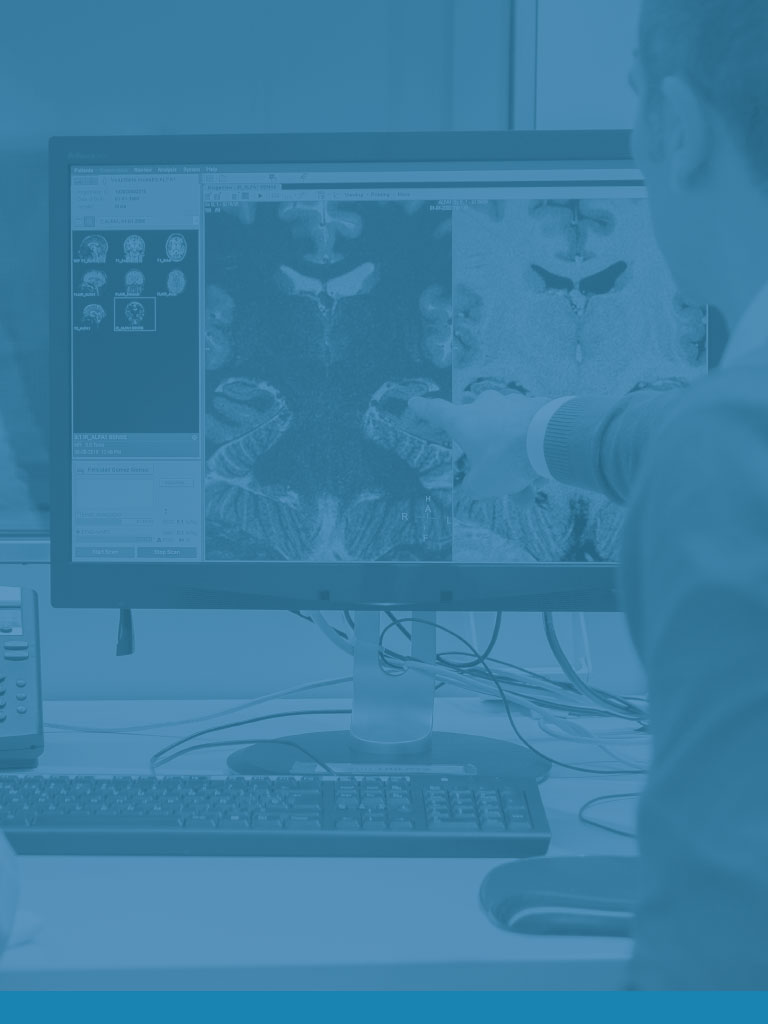
2021
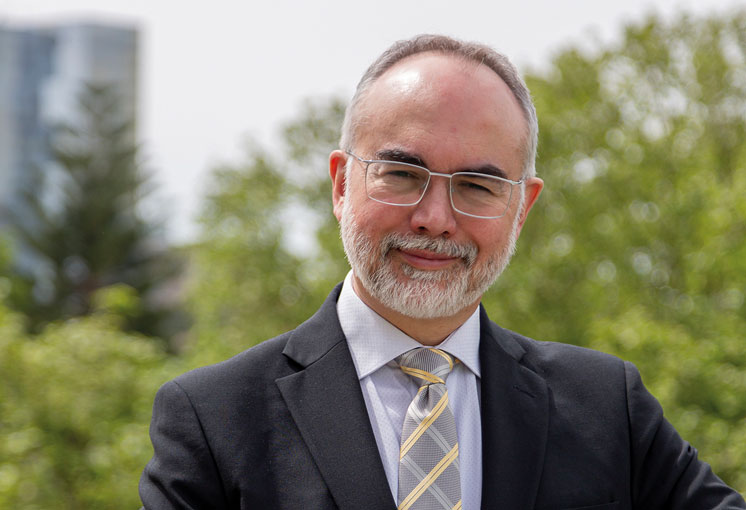
People without cognitive problems, but with a higher genetic risk of developing Alzheimer's, have certain areas of the brain that are more resilient to the disease thanks to the omega-3 fatty acids of oily fish. It was discovered by a study led by the BBRC. + info

The BBRC research team, thanks to the support of the “la Caixa” Foundation, points out that weight loss could be an indicator of a higher risk of developing Alzheimer's. + info
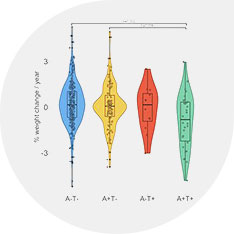
The BBRC culminates the research project on artificial intelligence algorithms developed five years ago with the constitution of the company Betascreen. Thanks to the application of this technology, it will be possible to predict the abnormality of Alzheimer's biomarkers from brain MRIs and thus reduce the recruitment costs of Alzheimer's prevention clinical trials by up to 50%. + info
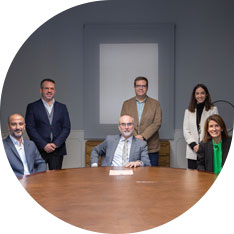
The CNIC, in collaboration with the Barcelonaβeta Brain Research Center (BBRC) and Banco Santander, reveals that the relationship between cardiovascular disease and cognitive impairment factors occurs many years before the first clinical symptoms of either of the two pathologies appear. + info
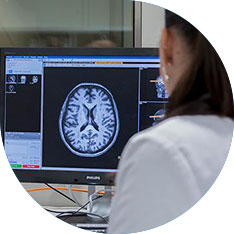
People without cognitive problems, but with a higher genetic risk of developing Alzheimer's, have certain areas of the brain that are more resilient to the disease thanks to the omega-3 fatty acids of oily fish. It was discovered by a study led by the BBRC. + info

The BBRC, the research center of the Pasqual Maragall Foundation, promotes a new line of research. Led by Dr. Marc Suárez-Calvet, this new group of neuroscientists will focus on identifying blood biomarkers to improve the early diagnosis of Alzheimer's. + info
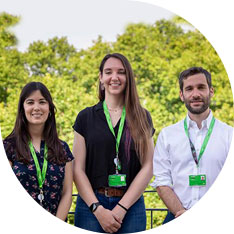
The BBRC research team, thanks to the support of the “la Caixa” Foundation, points out that weight loss could be an indicator of a higher risk of developing Alzheimer's. + info

BBRC researchers detect that music related to life experiences activates different parts of the brain than those involved in the natural process of remembering. + info
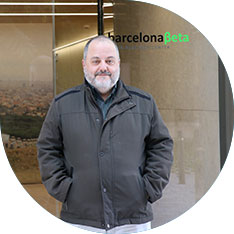
The BBRC culminates the research project on artificial intelligence algorithms developed five years ago with the constitution of the company Betascreen. Thanks to the application of this technology, it will be possible to predict the abnormality of Alzheimer's biomarkers from brain MRIs and thus reduce the recruitment costs of Alzheimer's prevention clinical trials by up to 50%. + info

We link increased exposure to nitrogen dioxide with higher levels of biomarkers of Alzheimer's disease. + info
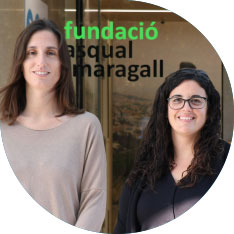
Budget
14.447.415€
Pasqual Maragall Foundation
9.116.996€
BBRC Research Center
5.330.419€

63%Pasqual Maragall Foundation
37%BBRC Research Center
| Total income | 14.447.415€ |
| Current income | 14.336.381€ |
| Patrons, partners and donors (60%) | 8.530.781€ |
| Research projects (37%) | 5.343.681 € |
| Income from clinical trials (1%) | 202.525€ |
| Public advocacy and institutional relations, social area and outreach (2%) |
259.394€ |
| Capital grant income* | 106.507€ |
| Financial income* | 4.527€ |
| *Not included in the chart |
| Total expenses | 14.225.126€ |
| Current expenses | 14.168.620€ |
| Research programs (63%) | 8.921.576€ |
| Communication and awareness (8%) | 1.163.377€ |
| Public advocacy and institutional relations, social area and outreach (5%) | 662.082€ |
| Investment in the network of partners and donors (19%) | 2.718.521€ |
| Administration (5%) | 703.064€ |
| Financial expenses * | 56.507€ |
| *Not included in the chart |

Partners

Solidarity
initiatives

Companies on the Patronage Council
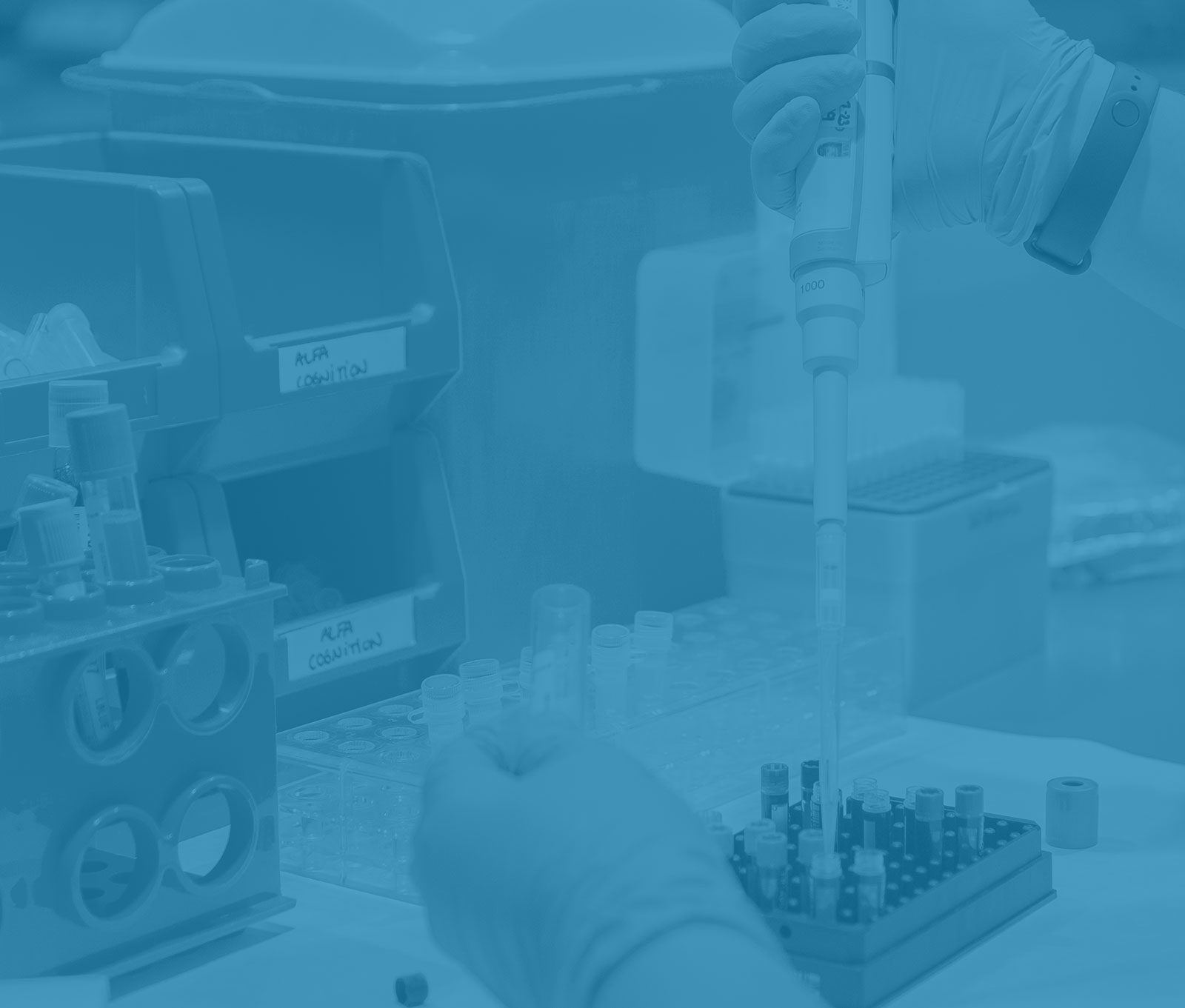
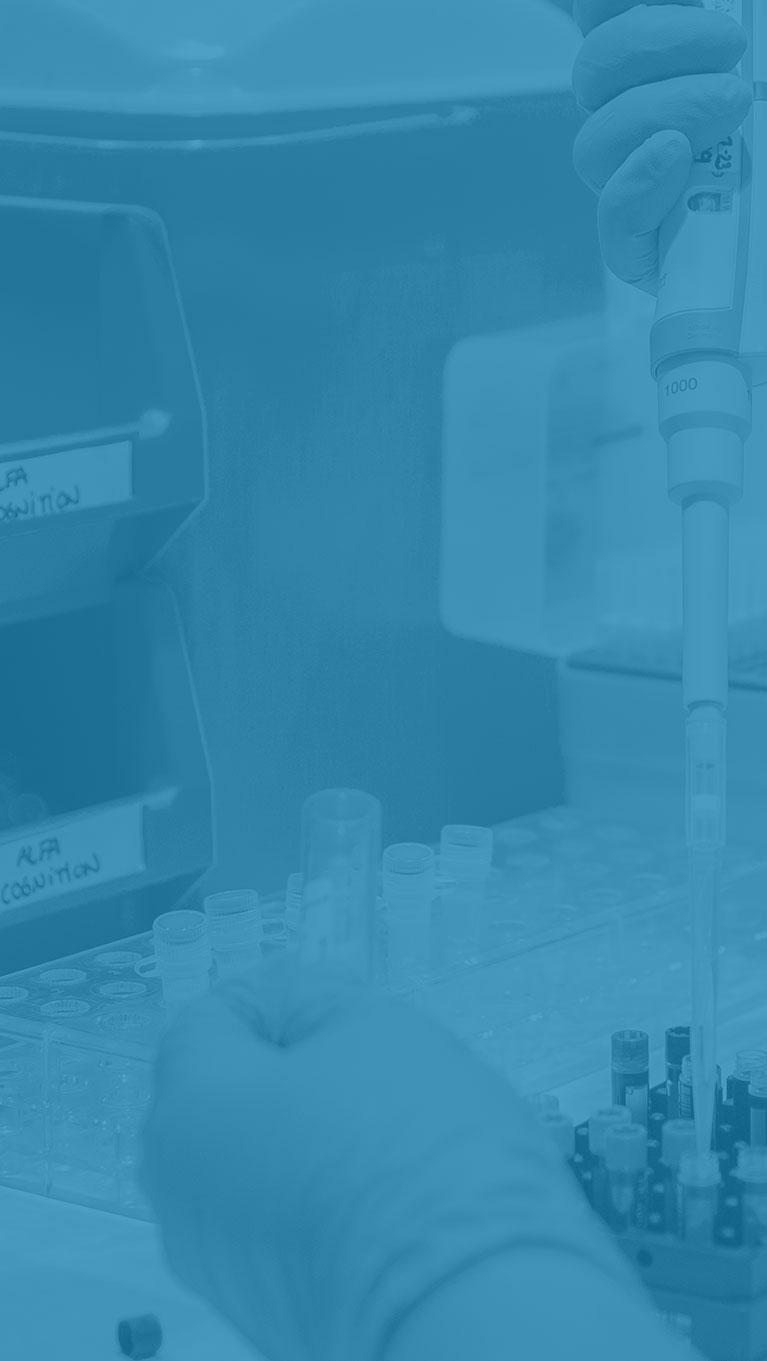
The research of the BBRC's Alzheimer's Prevention Program focuses on the preclinical phase of Alzheimer's disease, a period of up to 20 years before the appearance of the first symptoms in which changes in the brain associated with Alzheimer's already occur. To this end, the BBRC studies Alzheimer's from multiple perspectives: clinical, cognitive, genetic and fluid and neuroimaging markers. The Alzheimer's Prevention Program is currently structured into four research groups, two of them created in 2021: the Neuroimaging Research Group, the Clinical Research and Risk Factors for Neurodegenerative Diseases Group, the Research Group on Biomarkers in Fluids and Translational Neurology, and the Genomics Research Group.
Articles published
in prestigious
scientific journals
Published in
Q1 magazines
Published in
D1 magazine
 Scholarships and competitive grants
Scholarships and competitive grantsScholarships and grants
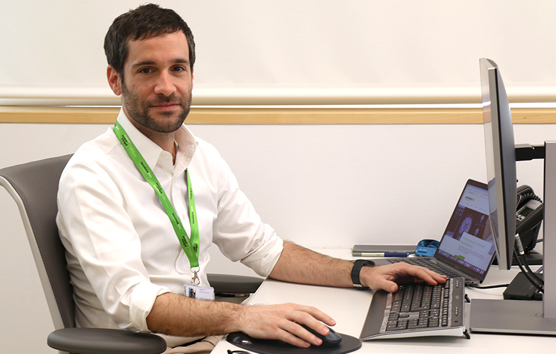
 Studies
StudiesThe Alfa Study is a research platform to identify early features of Alzheimer's disease. Launched in 2013 thanks to the support of the “la Caixa” Foundation, it stands out internationally for the volume of participants, which exceeds 2,700 people without cognitive alterations, between 45 and 75 years old, most of whom are sons and daughters of people with Alzheimer's.
The objective of the Alfa Study is to gather information from the preclinical phase of Alzheimer's in order to understand the natural history of the disease. Knowing the biomarkers and risk factors for Alzheimer's opens the door to early detection and the development of new prevention strategies.
The Dementia Prevention Clinical Research Unit is a study carried out between 2018 and 2021 that has studied the risk and biological bases of developing dementia five years from now, in addition to offering participants a personalized action plan to try to reduce their risk. The study has incorporated more than 300 participants between the ages of 60 and 80 who experience a decline in their cognitive abilities. While waiting to be able to analyze and interpret all the data, the intermediate analysis of results demonstrates the success of the selection of participants using algorithms and of the online registration method for the recruitment of people with these characteristics. The study also highlights the value of personalized clinical structures, since more than half of the participants in the Research Unit were able to be offered other clinical studies from which they could benefit.
The Neuroimaging Research Group of the BBRC has developed a set of machine learning algorithms capable of predicting the presence of abnormal levels of Alzheimer's disease biomarkers in the brain of individuals without cognitive alterations, through the analysis of data derived from MRI. The project has culminated in the creation of the first spin off of the Pasqual Maragall Foundation, Betascreen. This technology, applied to people participating in Alzheimer's clinical trials in MRIs, will make possible to identify which people really needs standard tests and in which cases they can be avoided.
In 2021, the BBRC participated in four consortia that bring together institutions from around the world in Alzheimer's and dementia research.
The BBRC collaborated with the project Fully automated plasma assays as screening tests for Alzheimer-related amyloid beta (Aβ) pathology, funded by the Alzheimer’s Drug Discovery Foundation, together with the University of Göteborg, the University of Lund and y Roche Diagnostics International; and continued working on TRIBEKA, together with the University of Edinburgh.
Additionally, the BBRC, as partner of the project EU-FINGERS, contributed with a participant to the advisory board of the consortium to provide advice and recommendations to the researchers and enrich the investigation with a diversity of voices and perspectives.
On the other hand, we continued researching in AMYPAD along with other 16 European institutions.


At the Pasqual Maragall Foundation we work to change the social consideration of affected people and caregivers. With this objective, we support families living with Alzheimer's disease through group programs for caregivers. We also promote outreach and awareness by offering talks, training and awareness actions.
 Actions
Actions
Between March 18 and 20, the Brain Film Fest 2021 took place, dedicated to mental health in times of pandemic and the importance of emotional and psychological well-being. The fourth edition of the festival was once again held in person at the Center for Contemporary Culture of Barcelona (CCCB) and, for the first time, it premiered an online version, with the collaboration of FILMIN and streaming broadcasts. Despite the restrictions of the pandemic, the festival reached 1,200 registrations and 5.000 Filmin visualizations.
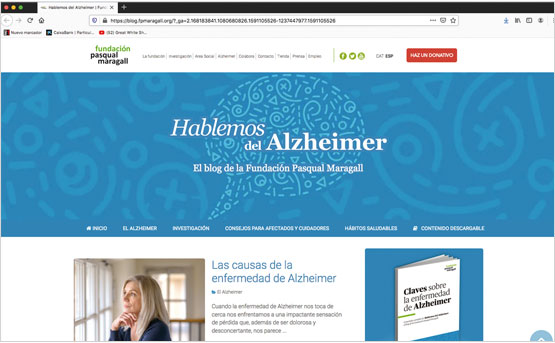
The Pasqual Maragall Foundation wants to answer the questions about Alzheimer's that affected people, their caregivers, family members and the general public may ask. The medical website certification granted by the Barcelona College of Physicians guarantees the quality of its contents. For this reason, June 2017, we launched the blog “Let's talk about Alzheimer's”, with rigorous, precise and updated information about Alzheimer's. In 2021, 29 new articles were published, reaching a total of 230. Throughout the year, 2.3 million visits to the blog were registered, 70% more than in 2020.

On World Alzheimer's Day, September the 21st, the Pasqual Maragall Foundation wanted to remark its support regarding one of the keys to finding a cure for the disease: research.
With more than 13 years committed to research, the Foundation stated that in order to erase the 21st of September from the calendar, funding is key. That is the reason why, within the framework of the World Alzheimer’s Day, the Foundation demanded in Congress that Alzheimer's be a strategic political priority.
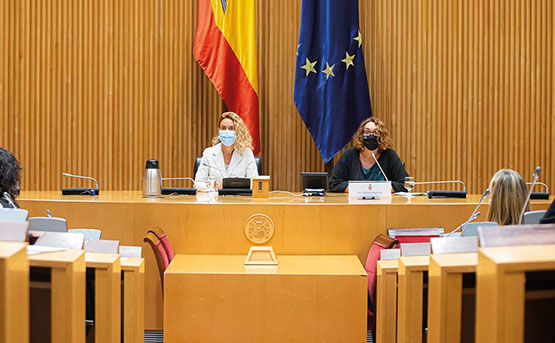
Led by the Pasqual Maragall Foundation, entities and experts unite our voices to ask in the Congress of Deputies for a boost in research and more resources to improve the quality of life of sick people, family members and caregivers. The demand was articulated through the act “The challenges of Alzheimer and dementia”, launched by the Foundation, together with the Spanish Society of Neurology (SEN, in Spanish), the Spanish Alzheimer's Confederation (CEAFA, in Spanish), the Foundation Matia and HelpAge Spain, in the framework of the World Alzheimer’s Day, celebrated on the 21st of September.

The bibliometric report Spain on the world map of Alzheimer’s research, produced by Research Marks Analytics for the Pasqual Maragall Foundation, demonstrated that Spain is one of the leading countries on a global scale regarding Alzheimer’s research. The conclusions of the study, which stemmed from the analysis of 58.849 scientific publications from around the world, were published on the occasion of World Science Day, November 10.
The data of the report suggest that Spain is the 6th most prolific country in the world in publications on Alzheimer’s – and the third in the European Union-, in a ranking led by the United States, China and the United Kingdom. Likewise, Spain occupies the third position in publications per million of inhabitants, and the eighth regarding quality indexes and scientific excellence.
Catalonia and the Community of Madrid, with 507 and 378 publications, respectively, in the period between 2016-2020, led the national ranking. Moreover, Barcelona was the 6th city in the world regarding volume of publications on Alzheimer’s and the 5th in publications per million of inhabitants.
 Group programs
Group programs 18
New
groups
157
Participants
The objective of the therapeutic groups is to offer caregivers the information and tools necessary to understand and accept Alzheimer's disease, to improve their quality of life and, consequently, the quality of care and well-being of people with Alzheimer's at their expense. In 2021, the therapeutic group program created 18 new groups with the participation of 157 caregivers of people with Alzheimer's in Barcelona, Lleida, Tenerife, Alcalá de Henares, Madrid, Vigo and Castellón. In addition, 5 accompaniment groups were organized for relatives of Alzheimer's in Alcalá de Henares, Tenerife, Vigo and Castellón.
Taking advantage of the learning and the new dynamics arising from the pandemic, at the end of September, the Pasqual Maragall Foundation launched the group support and training program for non-professional caregivers of people with Alzheimer's, “Learn to care and to take care of yourself”. In this new program, 12 groups were held in 2021 with 121 people participating. The intervention was born with the aim of providing caregivers with the necessary tools to manage, with the best possible quality of life, their day-to-day life with a person with Alzheimer's, taking into account both their own well-being and that of the people who they care for.

In 2021, the social base of the Pasqual Maragall Foundation did not stop growing and closed the year with more than 50,000 members, who are essential to advancing the project. In addition, it also received the support of companies and collaborators who promoted solidarity initiatives to continue research into Alzheimer’s prevention.
 Collaborators
CollaboratorsOur sincere thanks to the network of partners and donors, and to the entities, companies and professionals that have supported our research through their contributions and collaborations. Our recognition also to all the volunteers who dedicate their time to us and help us in the organization of actions and events.
 Partners
Partners50.005
Partners
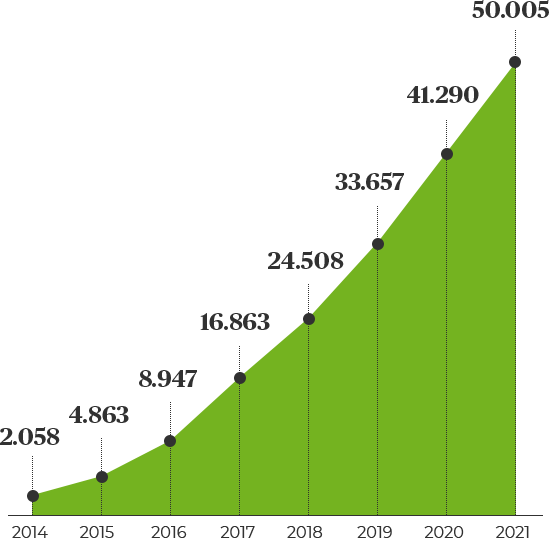
Solidarity has not stopped growing during 2021 and this is demonstrated by our figures. More than 8,700 people joined our commitment to achieve a future without Alzheimer's, which has allowed us to grow our social base up to 50,000 partners, which is what gives us the strength and support necessary to achieve our goal. During this year, donations also increased, injecting nearly €400,000 into the Foundation's project. One more year, people and organizations from all over the country, through unforgettable initiatives and ideas, have put their creativity and commitment at the service of the fight to defeat Alzheimer's.
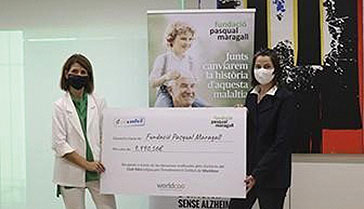
The Valvi supermarket chain demonstrated its commitment to social integration by giving away the almost €10,000 that its customers donated to the Pasqual Maragall Foundation through Solidarity Rounding. The benefits of the campaign, which was carried out during the month of September, were allocated to the online emotional support and training program for caregivers of family members with Alzheimer's, “Learn to care and to take care of yourself”.
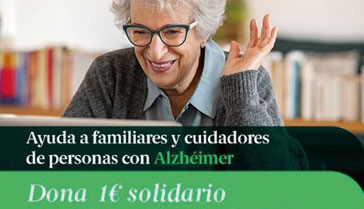
The online sales platform activated the option to donate €1 for each purchase. With just one click, Promofarma managed to collect €3,235 from its customers who donated to the “Learn to care and to take care of yourself” program.
Although 2021 was a year full of changes, the collaborators of the Pasqual Maragall Foundation did not stop and managed to raise a total of €124,063.69 thanks to the organization of 244 solidarity initiatives, three times more than the previous year, grouped within the project “People and unforgettable ideas for a future without Alzheimer's.”
“¡Aló, copywriter!” was a 100% solidarity online event promoted by Marina Febles, creative and writer, who managed to raise €12,300 to benefit the Foundation and its Alzheimer prevention research program.
10 km to make the invisible visible. This was the idea under which 'We Run Project' organized a solidarity race with seven beneficiary entities dedicated to different social causes, among which was the Pasqual Maragall Foundation. Thanks to this initiative, €2,350 was raised.
In October, the musical group Purple Pansa organized a charity concert at the Auditorium of the Valencian town Rafelbunyol. Thanks to this event, which brought together various musicians and composers, the group managed to raise more than €1,000, which was used for research against Alzheimer's.
The Musical Andreuenca Association organized a charity concert to support the research of the Pasqual Maragall Foundation and managed to raise €1,000.67. This has been the third solidarity concert organized by the association and it was in charge of the Jove Banda Simfònica of Barcelona.
The WASH Comics online store organized a collection of pesetas linked to our campaign “The last mission of the peseta”. The action, active between December 2020 and June 2021, managed to raise more than €500 at the various peseta collection points in Madrid.
Throughout the year, solidarity celebrations were organized for a future without Alzheimer's that raised more than €29,000. Through a donation to the Foundation, a celebration or family gathering, such as a wedding or birthday, any celebration can become an even more unforgettable event.
In 2021, 70 people were interested in bequeathing to the next generations a future where Alzheimer's disease has disappeared and they can age with dignity and enjoy life to the full. Through the campaign 'It will be a future without Alzheimer's. It will be thanks to your legacy', at the Pasqual Maragall Foundation we have received more than €135,000 in 2021 thanks to solidarity wills.